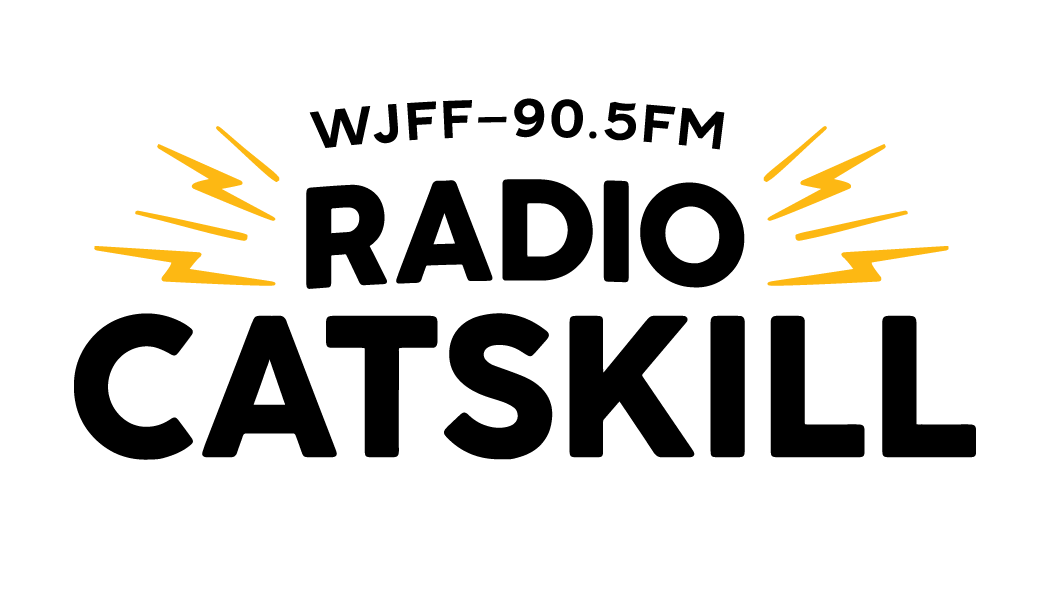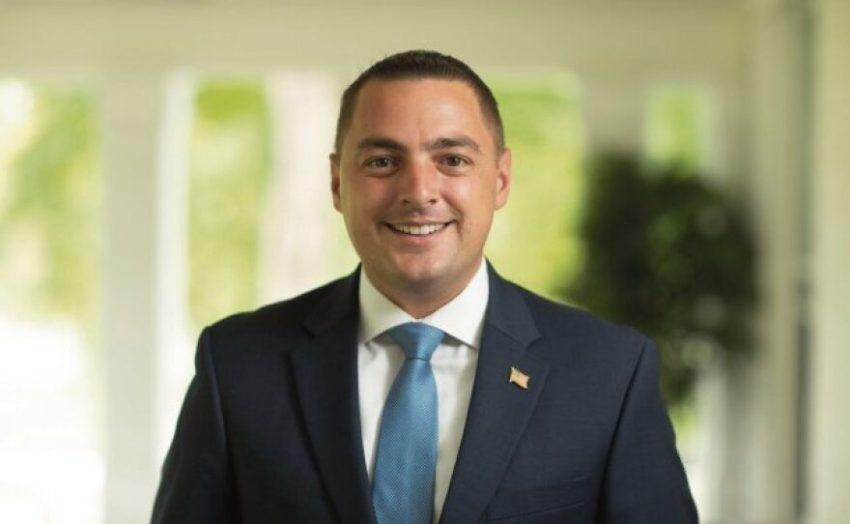Former New York State Senator Michael Martucci has been tapped as Region 2 Administrator of the Environmental Protection Agency. Region 2 covers New York, New Jersey, Puerto Rico and the Virgin Islands. Martucci, a Republican from Orange County, comes in at a time when President Trump has promised cutbacks across federal agencies and laid out specific goals for the EPA, including promoting the economy and energy production. Martucci will answer to former Long Island Congressman Lee Zeldin, who is now running the agency.
From the New York Public News Network, WAMC Hudson Valley Bureau Chief Jesse King spoke with Martucci about his objectives as administrator, and his first two weeks on the job.
“I came here and have been blessed with some of the most intelligent and dedicated career staff…So my first [two weeks] really has been coming up to speed on a lot of those issues and what they are,” says Martucci. “But my primary focus is a focus that has been laid out by our agency’s administrator, also a fellow New Yorker, Lee Zeldin — they’re focused on the core of our mission: ensuring every American has access to clean air, clean water, and clean land.”
What would you say is your position on climate change, and humanity’s role in it?
I’ll point to two things I just mentioned about Administrator Zeldin — and I don’t know if you had the opportunity to check out his Congressional hearing, but our administrator spoke to this very issue in his hearing, and I would tell you that I approach that in much of the same fashion. There’s no doubt that there are issues that we’re dealing with here in our region, that are connected to climate change and the effects of climate change. So, as I begin to dig a bit deeper with our team here, I’m really interested in their plans and ideas, that they have actionable steps that we can take to make this planet a healthier place for all of us.
Something I’ve done a lot of reporting on is PCB contamination in the Hudson River. The EPA recently released its third five-year review of a General Electric dredging project in the upper Hudson, and it led to a lot of frustration from environmental advocates here, because they want the EPA to declare the dredging “not protective” of the environment. They say data shows that it’s not working, but the latest review from the EPA said it doesn’t have enough data. I want to get your thoughts on the situation. What do you view as the disconnect here?
As I said, I’ve really been coming up to speed on a lot of the key issues around the region with the staff. While I have not had the opportunity to dig deep into this — and I expect to be digging very deep into this issue in the coming weeks — what I do know right now is that EPA, at our regional level here, is declining to file determination until more review is conducted. I think perhaps you and I could circle back on this in just a few weeks, once I really have an opportunity to understand in greater depth exactly the work that’s been done there, the work that potentially is planned there. But right now, what I do know about this is that more data is needed in order for the agency to file determination.
New York has moved to eliminate gas stoves and heating in new construction. Do you think this is a good idea?
From my perspective here, and things that you’ve been seeing our administrator talk a little bit about — what I’ll say overall is that one of the things that we’re focused on doing here is being protective of the environment, but at the same time acknowledging some economic pain that people are feeling right now. While you could talk about specific state mandates, and what those mandates mean, from our perspective: protecting our environment and making life easier and more affordable for people in the region are not mutually exclusive. And I think that the approach that I’m looking to take is to be informed on the science, and at the same time, pay attention to the economics of things that are happening right now. And acknowledge that every single person driving an electric car is just economically infeasible. Folks can’t afford that, right? That’s not something that’s affordable right now for the average everyday New Yorker, or person who lives in New Jersey, or any part of this region for that matter.
So really, what it comes down to is balance. And I think that in the coming weeks, as our administrator really becomes seated in the agency, you’re going to see some more priorities come down as it relates to this balance. And those are things that I’m looking to employ here in the region. But what I do want to say: while balance is important, the mission of the EPA remains the same, and that is to protect the environment and protect human health. And I’m looking forward to doing my part to make sure that that mission is fulfilled — again, in a way that simply doesn’t bankrupt people.
Well, on that note about balance: the president has said he wants to promote energy production, including fracking, across the U.S. How do you reconcile or balance that with laws in New York, where fracking is banned?
Jesse, I don’t know, I can’t sort of speak to how changes in federal policy, whatever they will be, will impact individual states — and I don’t want to speculate on that, either — but what I will say is that the president has been very clear about the fact that energy production and domestic energy production is important, so I know that will be a focus of this administration and its agency. Another priority that’s been spelled out very clearly by our administrator is his emphasis on cooperative federalism, and ensuring that states have their role, and we work cooperatively with states. So I think that in places like New York and New Jersey, there will be times when the federal administration’s priorities conflict with state priorities. I don’t know exactly how that spells out right now. But what I will also say is that, from an agency perspective, and from my perspective in relation to state partners — even when we have disagreements on policy — one of the things I have done in the first couple weeks that I’ve been here is connect with the state DEC commissioners in both of the states. I have connected with those commissioners and expressed that we want to work alongside them and with them cooperatively throughout this administration. Because the challenges we face, in terms of protecting human health and the environment, can’t just be done by the staff here in Region 2. We need our state partners and our local partners. So that has also been one of the priorities that I’ve laid out in the first two weeks, is being clear that, while there might be policy differences in the future, what that doesn’t mean is that we’re not going to work cooperatively when it comes to our core mission.
I know you’re in your first weeks on the job here. But in these first two weeks, what are some specific locations with air and water pollution that have caught your eye, that you want to hone in on?
I’ve been briefed by our air division, and as you probably are aware, one of our big focuses are areas of nonattainment, areas that don’t meet air quality standards. I want to see a region where every single person in this region is breathing air that meets our air quality standards. So my laser focus is going to be in places right now that we’re not reaching attainment. And certainly on the waterfront, as you speak about those, it tees right into some of the superfund sites that you talked about. We have several large superfund sites in the region that are directly connected to water quality. And lastly and finally, on the clean land front, we have a team here in a division that’s focusing [on a] brownfields program that is centered in economic development. You know, you call a place like Newburgh home, you know that even communities like yours have brownfield sites. And I look forward to prioritizing those sites. A lot of these are former industrial sites that can be repurposed and reused in a good economic way. We’re fixing community blights and we’re creating opportunities in places that I think will benefit from them in a tremendous way.
What I’m super excited to do is get out on the road and spend some time in these communities, connecting on the ground, and finding these opportunities in connection with our local partners. And I’m talking about going out and meeting small-city mayors. I’m talking about going out and meeting with county and local representatives, some of my former colleagues in the state legislature in New York and new folks who I’ll meet in New Jersey, to try to identify these places in communities, because that’s that kind of work that I’m interested in doing.
Lastly, the president has said that he wants to cut spending at the EPA, and most federal agencies, really. How do you see that impacting your staff and your role as Region 2 administrator?
Well look, there’s two pieces to this. As you know, the administration has undertaken a deep dive and deep review of many of the contracts and grants that are currently held by the agency. And certainly, that is something that’s been a priority of the new administration, wrapping its hands around spending and making sure that every single tax dolla, that’s a hard-earned tax dollar by an American, that’s provided to this agency is used in a responsible way.
The other piece, which I’m sure you are well aware of, because it’s widely reported in the news, is that the president has issued a number of directives concerning the federal workforce. Among them are things like returning-to-the-office polices for federal workers, restoring accountability to folks who have decision-making authority, and also potential proposed cuts. Now, at my level, I don’t know exactly what that means. But what I would say is my focus is going to be ensure that we stay completely focused and committed to our core mission, which again, is making sure that every American has clean air, clean land and clean water. I look forward to doing that and I’m excited to be part of a team that gets to do that.

